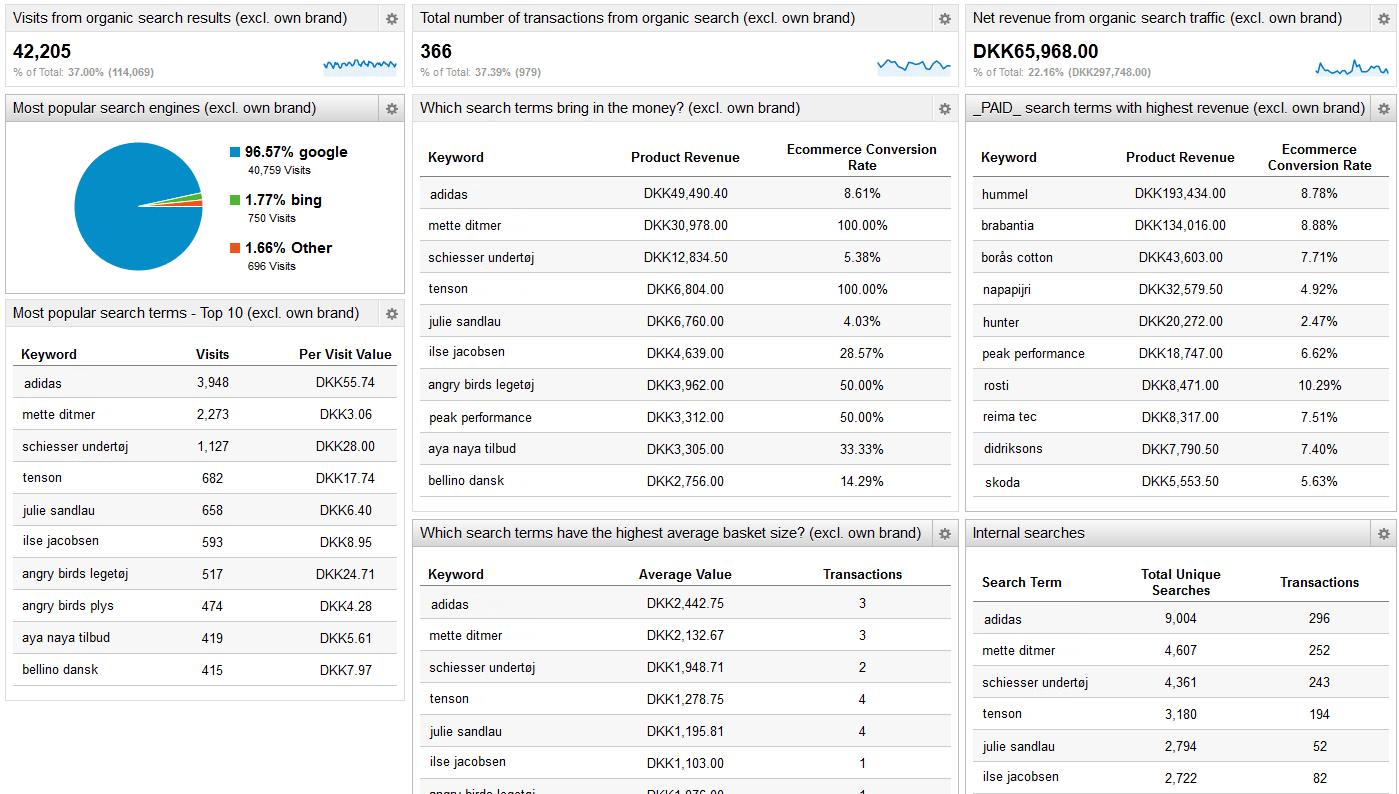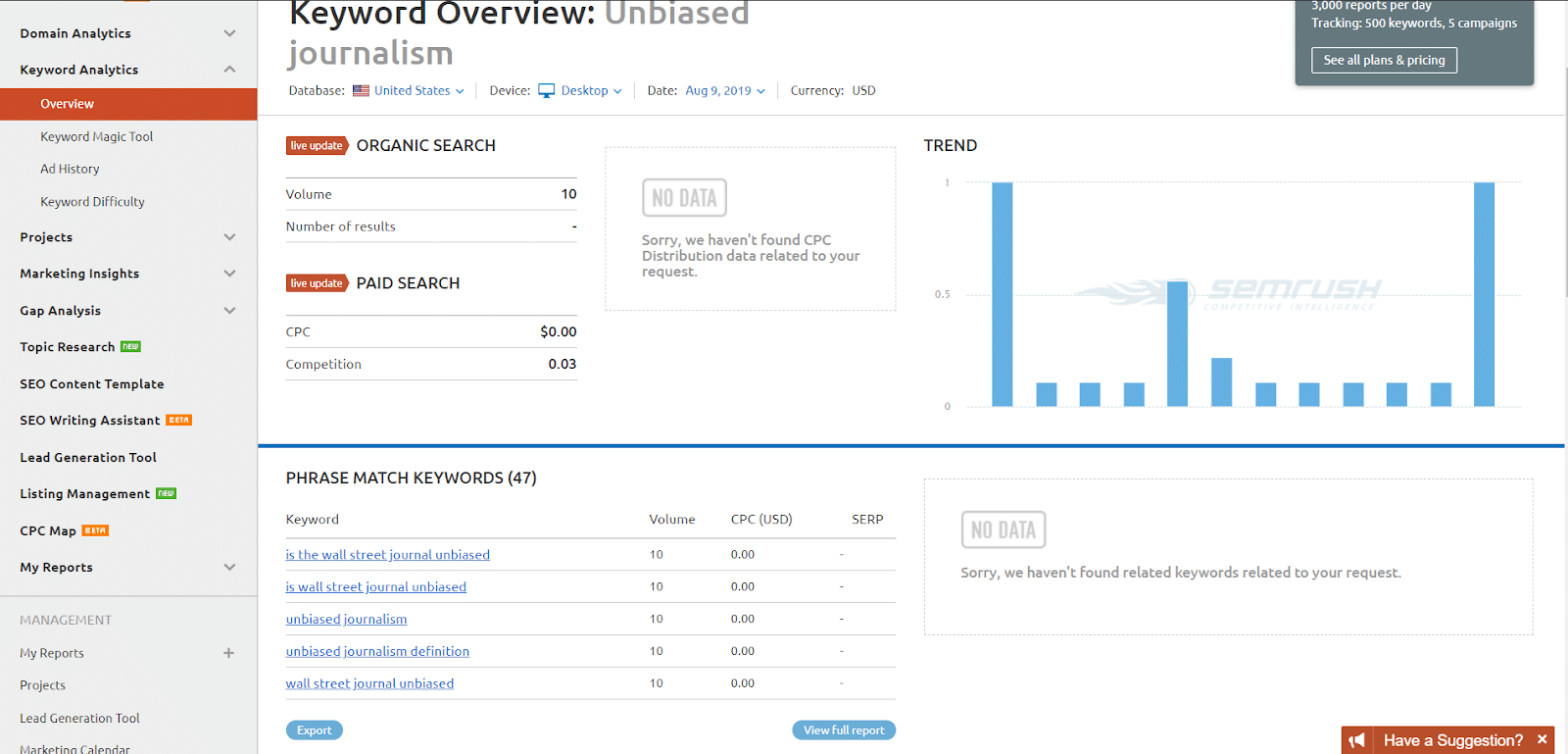In this article we’ll demonstrate how to do keyword research in a creative and thorough way. We'll discuss keyword research strategies and tools, and answer some keyword research questions.
Researching keywords for your SEO strategy involves contending with and delving within the adaptive intelligence of search engines like Bing and Google.
These companies employee genius AI and algorithms to match people with what they’re looking for and send them where they’re looking to go. To gain any meaningful results in such a stormy sea, you have to pay close attention and do your best to measure the waves and tides to bring your ship into harbor successfully (if you’ll accept all the nautical themes).
How SEO changes both for your business, your competitors, and the internet at large is something the clever content marketer will keep an eye on at all times, as it both directly and indirectly relates to his own SEO marketing strategy. Since so many companies are optimizing for their own keywords left and right, the keyword rankings are constantly changing.
Here are some critical research points to hit in the quest to find the right keywords and successfully rank for them.
There are plenty of tools out there for keyword research, but starting off with the right one can make all the difference in determining your success.

Google Keyword Planner has been one of the most trusted and well-known keyword analysis tools among digital marketing and SEO professionals for a long time. The main purpose of using the keyword planner tool is to access the average monthly search volume of relevant keywords. This helps you determine the profitability of your targeted keywords or key phrases. Here is a screen shot of the Google Keyword Planner dashboard.

SEMrush is considered one of the most comprehensive all-in-one SEO tools. Competitor based keyword research option along with the traditional approach will help you find out not only what success you are having, but if your competitors are as well. Just add the URL of your competitor and it will show all the keywords that are ranking for your competitor’s website. Here is an image of the search function in SEMrush. Along with keyword analytics, you can also see domain analytics to track the authority of your pages and your competitors.
Ahrefs Keyword Explorer tool has become one of the most popular keyword research tools because of its user-friendly interface and the amount of data it provides. The best part is you can make a list of your target keywords directly from its dashboard without maintaining an excel sheet which saves you a lot of time. Here is an image of an Ahrefs keyword search. You can see all kinds of data like related question keywords, what the cost per click is, what the seen vs conversion rate comes out to be, etc.
Answer the Public is a question-based keyword research tool which provides a long list of prepositionally sorted keyword suggestions. This tool is also helpful to generate topic and content ideas. Here is a picture of me searching for the keyword “unbiased journalism”.
These are just a few of the tools available, and certainly make for the most popular. Next let’s discuss who, what, and how to go about your keyword research strategy.
When coming up with the keywords to try and implement into your SEO strategy, it’s worth following some best practices to get a head start over your competitors.
When conducting broad-spectrum keyword research to find where it’s necessary to start, it’s worth trying to figure out what are the most relevant keywords for each of these five categories in order to collect maximum search results.
If you’re just starting out, pick two questions, two location-specific keywords, etc. etc. and set up your website to try and rank for that set. See how you do, and change them to another set after a week or two weeks goes by.
Why yes!
If you ever watched Family Feud in your life, you’ll remember the host going “survey says…” that’s because before each episode, the staff of Family Feud would ask the questions which would be featured on the show to the audience members. They would rank order the answers based on how many times over they were given, and then the game would happen.
So what you can do is survey your office mates, friends, or team members and apply the same practice.
Try and set your knowledge of your own product or service to 0 and have you and your team search Google like you would be if you didn’t know anything about it. See what comes up.
This is a tactic that will likely be more of a benefit the more people in your operation participate, as it will more closely reflect the reality.
So if everyone in your office, while pretending they didn’t know anything about the company, types something in Google, and 7 of the 16 office workers all came up with the same idea, that’s a good keyword to start off with.
You could even go beyond your place of work and ask family members friends and other acquaintances to do the same thing. In fact you ought to, because they will truly have no idea what exact products or services you offer, so it’s a more realistic survey.
At least, they may be of help when it comes to your keyword research strategy. Since you’re sharing the same niche, you may use some of the keywords your competitors use.
“The first metric that website owners often wrongly pursue is the search volume. The main thing you should remember about search volume is that it doesn’t equal clicks. In simple words, people don’t always click the search results they get for a particular keyword.”
“Consider this example: Google now has the “Answer box” in the search results where it shows the instant answer for the questions that it defines as “simple.” Usually, those are questions about the date or quick info about an event or person (e.g., “Donald Trump age”). If people were just looking for the date of the upcoming Oscar 2019 ceremony, they might not click any of the results on the SERP.”
(An example of the answer box)
“That’s why you should always check other metrics like the number of clicks or the traffic estimations to get the whole picture of the keyword. Dig deeper beyond the search volume and explore the context and the characteristics of a keyword to find rare gems. Only this way you get valuable and highly-targeted traffic.”
If your seed keyword isn’t ranking you very prominently, don’t be married to it, or for that matter, be afraid to branch out and try to rank for others.
For example, just because your seed keyword is something like “unbiased news sources,” doesn’t mean you shouldn’t try something else if it isn’t coming along. You could tweak it to something similar like “factual news sources,” “unbiased reporting,” etc. etc.
Always be on the lookout for synonyms or easy next-door keywords from the ones you’re ranking for.
As an example, consider what my colleague points out, it’s hard to tell whether someone will search coat over jacket, or as I just mentioned, unbiased over factual.
What are some great and easy ways to see what synonyms people are using on Google? Google it!
PICTURED: This is a list of related searches that are attached to the bottom of the page of every Google search. These are a good place to start.
If there’s something about your keywords or meta-description that isn’t doing well, try and organize a scheduled change to see if a week or two weeks of something different works better. You can only get good data back on your keywords if people are searching the internet and landing on your domains.
A calendar or schedule will help keep all the relevant staff aware of what keywords are being worked on during a given period, whereby clear data should emerge that you can take action on. A simple addition like Google Calendar would suffice.
If you remember at the start of this article, I mentioned picking a few keywords from the 5 keyword categories which are:
Once you’re happy with the ones you’ve picked work them into your SEO strategy and see what you can come up with. After 2 weeks, log the results in the calendar and change the set of keywords.
Compare the following set’s performance with the earlier one, ,and keep in touch with your staff via the calendar.
So here you have all kinds of information about how to jump start your keyword research strategy in a way that’s intuitive, creative, and thorough. You should have a decent set of keywords by two weeks’ time once you’ve selected a keyword planning tool.
Remember to always pay attention to keywords similar to your own that you aren’t ranking as high for – those a prime targets to expand your ranking and reach.